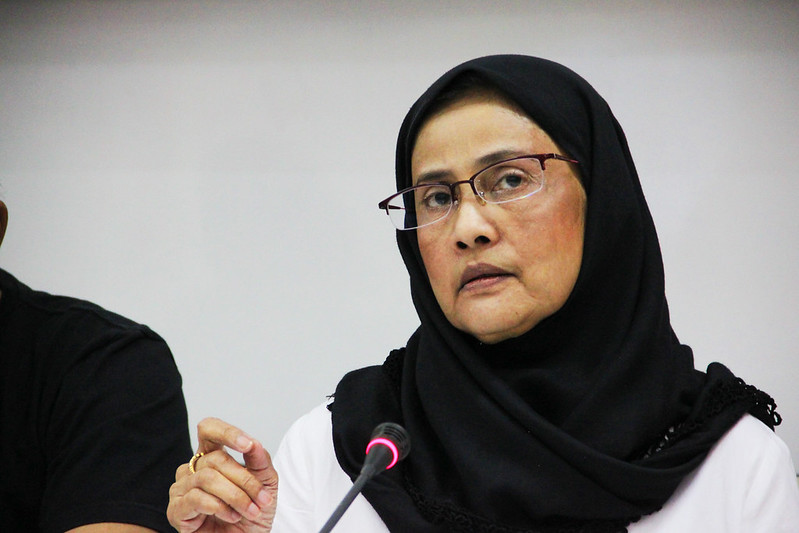State parties’ fulfilment of obligations under the International Covenant on Civil and Political Rights (ICCPR) are periodically evaluated by the Human Rights Committee (HRCtee). The HRCtee is expected to assess Thailand’s compliance with recommendations the HRCtee prioritised during its most recent review of Thailand in 2017.
To feed into the review, ISHR filed an assessment of actions taken by Thailand to implement the HRCtee’s recommendations on enforced disappearances. The submission focuses on Thailand’s violations of the rights of Angkhana Neelapaijit regarding the disappearance of her husband Somchai Neelapaijit in 2004, a lawyer and human rights defender who publicly spoke out against the State’s treatment of Malay-Muslims in the Southern Provinces.
In Thailand, most victims of enforced disappearances are male, which means the on-going impact of the disappearance disproportionately falls on women spouses and relatives who survive them. Spouses like Angkhana are left to carry the burdens of seeking justice, caring and providing financially for their families in a discriminatory society where their employment options are limited.
ISHR’s submission argues that Thailand’s actions regarding the disappearance of Somchai Neelapaijit illustrate the way the State violated Angkhana’s rights under the ICCPR and failed to comply with the HRCtee’s recommendations to:
(a) Ensure that cases are reported and that prompt, impartial and thorough investigations are carried out into all allegations and complaints concerning the unlawful and excessive use of force by law enforcement officials and the military, including torture, enforced disappearances and extrajudicial killings, including in the context of the southern border provinces. It should also ensure that perpetrators are prosecuted and, if convicted, punished with appropriate sanctions;
(b) Provide the truth about the circumstances of those crimes and, in cases of enforced disappearances, clarify the fate or whereabouts of the victims and ensure that their relatives are informed about the progress and the results of investigations; and
(c) Ensure that the victims are provided with full reparation, including satisfaction and guarantees of non-repetition.
Despite Angkhana’s sustained efforts, no perpetrators have been held to account and she has not been provided with the truth or adequate reparation for her husband’s enforced disappearance. Since the HRCtee’s review in 2017, the State has failed to protect Angkhana Neelapaijit and her family from threats, harassment, smear campaigns and increased isolation from their community.
ISHR’s submission underscores that, in order to fulfill the HRCtee’s recommendations on enforced disappearances, Thailand must:
- Enact legislation on the prevention and suppression of enforced disappearances, which recognises the family of those that are disappeared as victims of such crimes;
- Take appropriate measures to address the gendered impact of enforced disappearances and the intersecting forms of discrimination faced by Muslim women in the southern border provinces, in particular widows and women heads of household; and
- Ensure that women whose spouses or other family members have been subjected to human rights violations have access to effective remedies and obtain justice, including by ensuring that such violations are thoroughly investigated, alleged perpetrators prosecuted and, if convicted, punished with appropriate sanctions.
‘This follow-up review represents a key opportunity for the HRCtee to recognise Thailand’s lack of compliance with its recommendation on enforced disappearances,’ said Tess McEvoy, ISHR’s Legal Counsel and Programme Manager.
In 2018, ISHR and the International Commission of Jurists filed an individual communication to the Committee on the Elimination of Discrimination Against Women (CEDAW) on Ankghana’s behalf. ‘Our communication highlighted the impact of enforced disappearances on the relatives of the disappeared. ISHR is committed to pushing for the recognition of the gendered impact of enforced disappearances in Thailand,’ said Pooja Patel, ISHR’s Programme Director on women human rights defenders.




